| |||||||||
| Poll-Based Odds | ||||||
Nov 3 update:
Here are the Latest Polls which we're using for our poll-based odds:
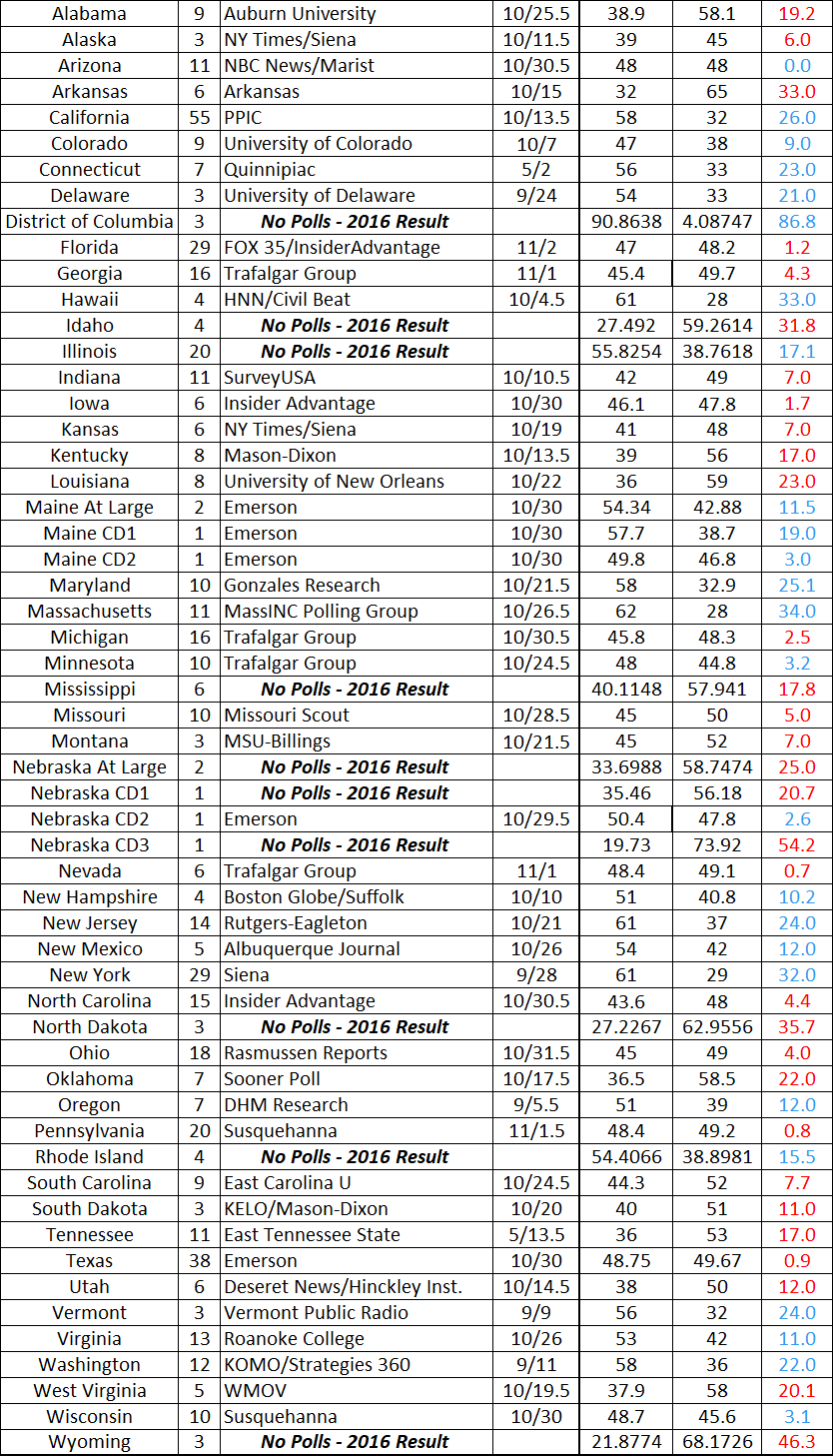 Electoral Votes where Biden leads - 238 Electoral Votes where Trump leads - 289 Electoral Votes where Biden/Trump are tied - 11 (Arizona)


 Method Our poll-based analysis began in 2000 with the Bush/Gore presidential election. In 2010, we began our Senate analysis. Using data from the most recent poll, we determine the probability for the Democratic candidate and the Republican candidate and use these individual race probabilities to calculate the odds for every possible combination of outcomes and calculate each party's odds of winning. We include poll findings from every pollster with these provisions:
Each of the 50 states has an electoral vote value which equals the total of the number of representatives they have in Congress. There are 435 members of the House, 100 Senators in the Senate, and 3 Electoral votes are awarded to the District of Columbia. Thus, the total number of Electoral votes is 538. Whichever candidate wins a majority of the 538 Electoral votes, therefore 270 or more, wins the Presidency. With the exception of Maine and Nebraska, states award all of their electoral votes to the popular vote winner in their state. However, Maine and Nebraska award 2 of their electoral votes to the popular vote winner for the state and also an Electoral vote to the popular vote winner in each of their Congressional districts - Maine has 2 districts, Nebraska has 3. If you're keeping score, with 50 states, the District of Columbia and the 5 Congressional Districts in Maine and Nebraska, there are 56 different opportunities to win Electoral votes. Mathematically, this translates to over 72 quadrillion possible outcomes. For each outome, there is a an electoral vote total for each candidate and a probability that the outcome occurs. Our Electoral College Daily Tracker follows the probability for each competitive state or district, defined by the latest poll within that state or district. We show the current poll-based probability for Biden in each state. States where the current probability exceeds 90% for either candidate are not included on the daily tracker, but are included in each candidate's total and in the overall probability of winning. 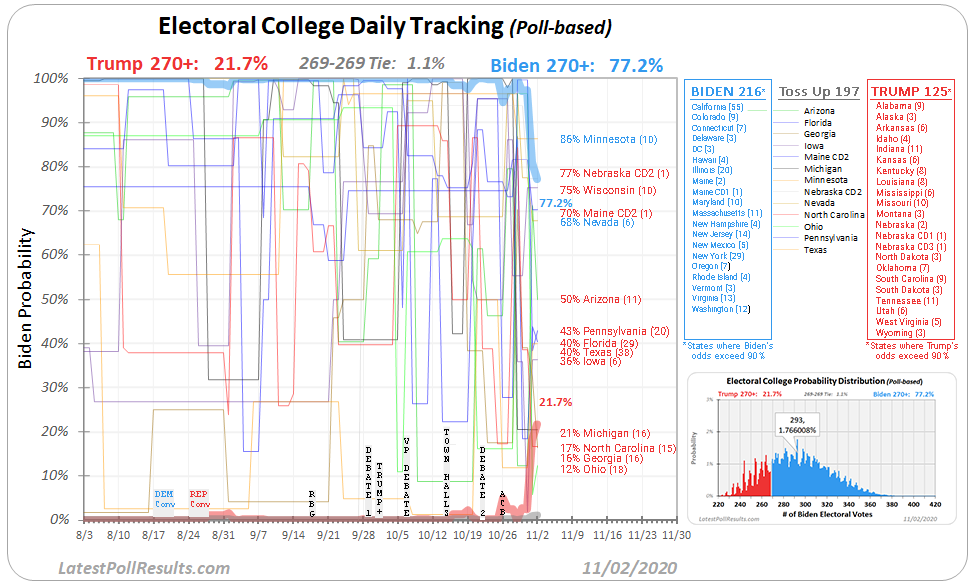 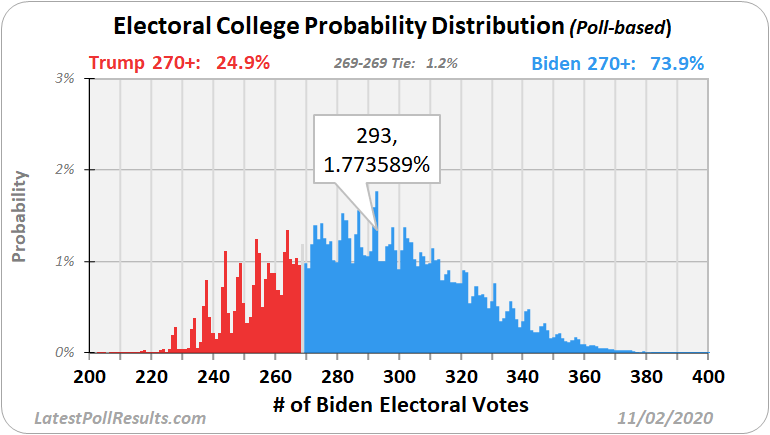
Senate Currently, Republicans hold a 53-47 edge in the Senate. This year there are 35 Senate seats which are up for election, 12 will be defended by Democrats and 23 by Republicans; 30 Republicans and 35 Democrats are not up for re-election. With 35 contested seats, there are over 34 billion possible outcomes. From the individual seat probabilities, we calculate the odds for every possible outcomes and calculate each party's odds of winning. 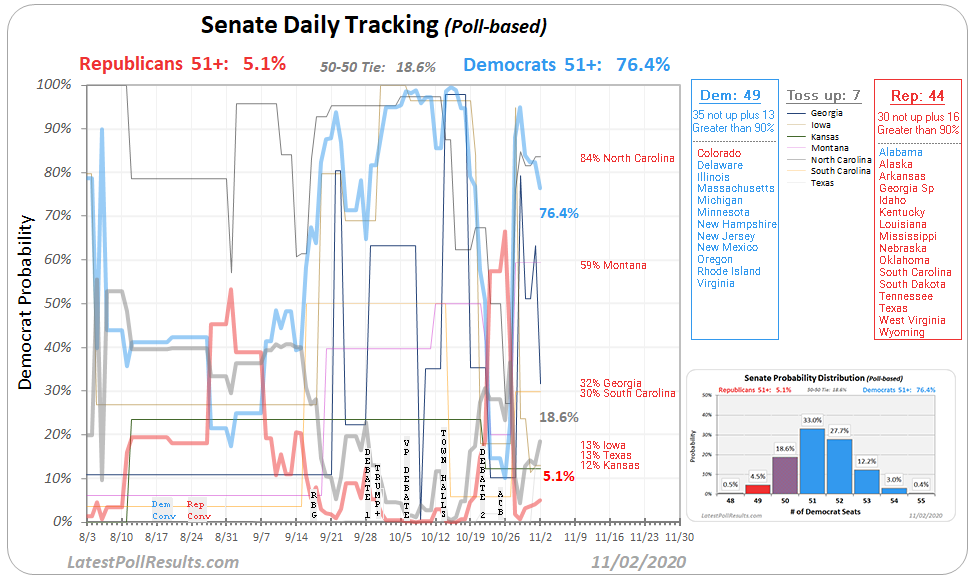 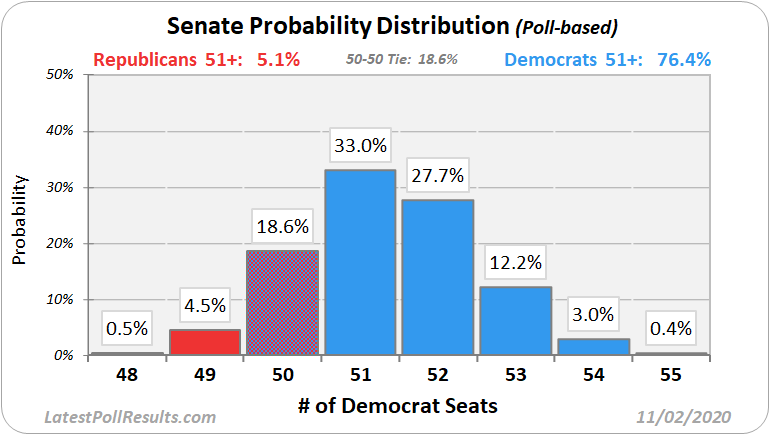
| ||||||
